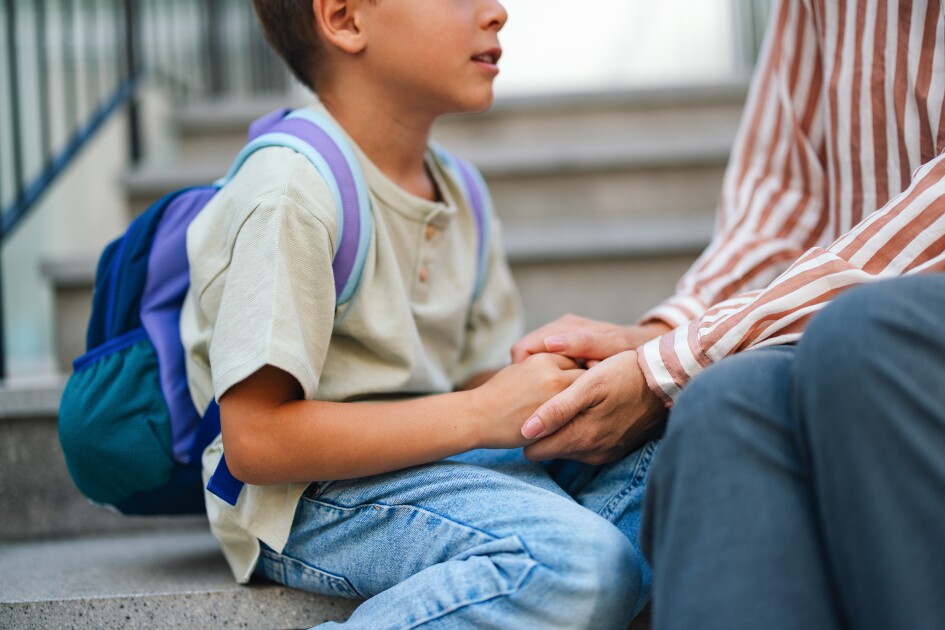Pickup time at the end of the school day is always a rush. At the close of a typical school day for Travis Lawrence, the principal of Greenville Middle School in Greenville, Wis., about 1,400 kids pour out of the neighboring elementary and middle schools and into their parents’ cars and onto school buses in the span of about 15 minutes.
“It takes a team of people to make sure everything runs as smoothly as possible,” he said. “It’s 15 minutes of a little bit of stress at the end of the day, but when it gets done you take a big sigh.”
Until school personnel realize that a kid hasn’t been picked up. What schools do with an unclaimed student at that juncture can vary considerably, according to a recent survey by the EdWeek Research Center.
The most popular approach, say three-quarters of principals and district leaders who responded to the question, is to have a school or district employee wait with the student until the parent arrives—however late that may end up being. That’s followed by 25 percent who said they send a student to an after-school program.
A smaller but substantial number of principals and district leaders say their school or district calls police or child protective services. Nearly 1 out of 5 said that when a parent fails to show up, the school calls the police. And 12% of principals and district leaders say they call child-protective services.
The EdWeek Research Center surveyed a nationally representative group of educators in March and April, including 283 school and district leaders.
What schools do when parents don’t pick up their kids
Lawrence’s focus is making sure students go home with the right person when school lets out at 3 p.m.
“Personally, there have been times where I have been here until 4:30 waiting for a parent to pick up their child. But overall, we don’t really have an issue with kids not getting picked up,” he said. “The primary focus of any policy related to pickup is student safety: ensuring that kids are going home with the person they are intended to go home with.”
Bebi Davis is among the 13 percent of school and district leaders who say an employee will drive a student home. She has very occasionally done this herself—although she doesn’t recommend it as a general rule. Davis is the principal of Princess Victoria Kaiulani Elementary in downtown Honolulu.
“We try to not drop off kids to their homes unless it’s absolutely necessary, because of the liability. But there have been times where I do” with the parent’s permission, she said.
Understanding your school community and being flexible are important aspects of a late pickup policy, said Davis. Several parents of students in her school work nights, and Davis has very occasionally had a situation in which a parent sleeps through pickup time. Others work in jobs in which they must stay until the next shift shows up, and that can delay their arrival.
In Davis’ school, students sometimes stay with their teachers in their classroom if they know the parent is on the way. Otherwise, the front-office staff will look after the student. Davis makes sure to have snacks on hand for students, which provides a good distraction for kids if they start getting upset.
She has stayed at school as late as 6 p.m. with a student when a parent’s car had broken down, and she knew the parent was accounted for and working on getting to the school. But if a parent fails to show up and is not responding to phone calls, Davis said the school will call law enforcement to do a wellness check on the parent, she said.
How many schools charge parents fees for late pick up
As highlighted in a recent uproar in Houston when an elementary school started charging parents fees when they were late to pick up their children, a handful of school and district leaders—6%, according to the EdWeek Research Center survey—say their schools have a policy that allows them to fine parents.
The situation at Herrera Elementary School showed the tight spot schools find themselves in when parents are consistently late in collecting their children. It’s a strain on teachers and school staff to have to provide unplanned child care, and it can hurt teacher morale when they feel like they’re not being treated as professionals.
The Houston district suspended the policy and issued refunds after parents complained.

